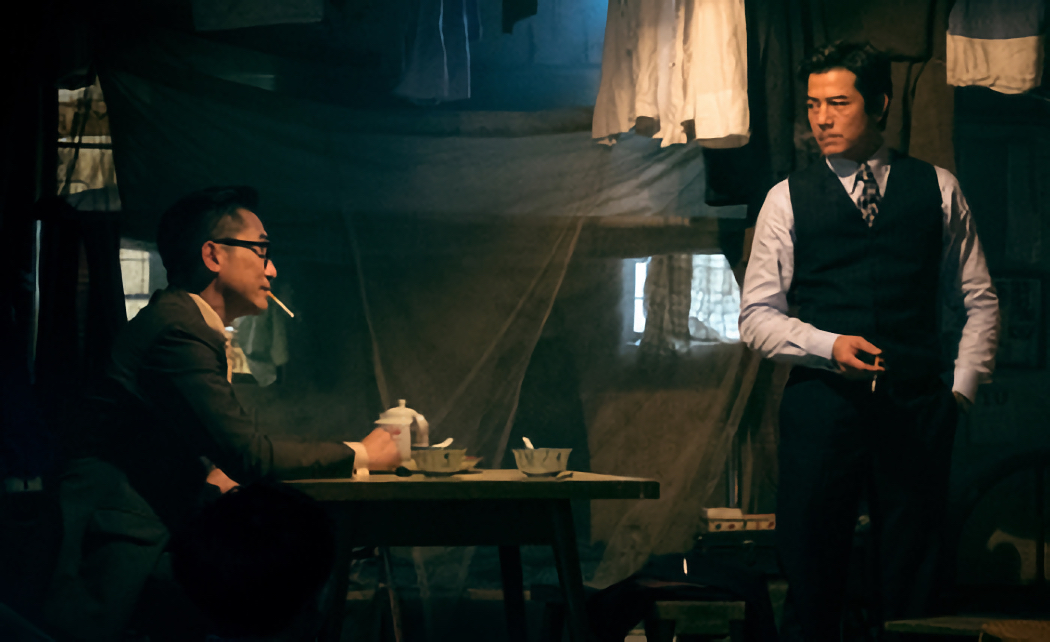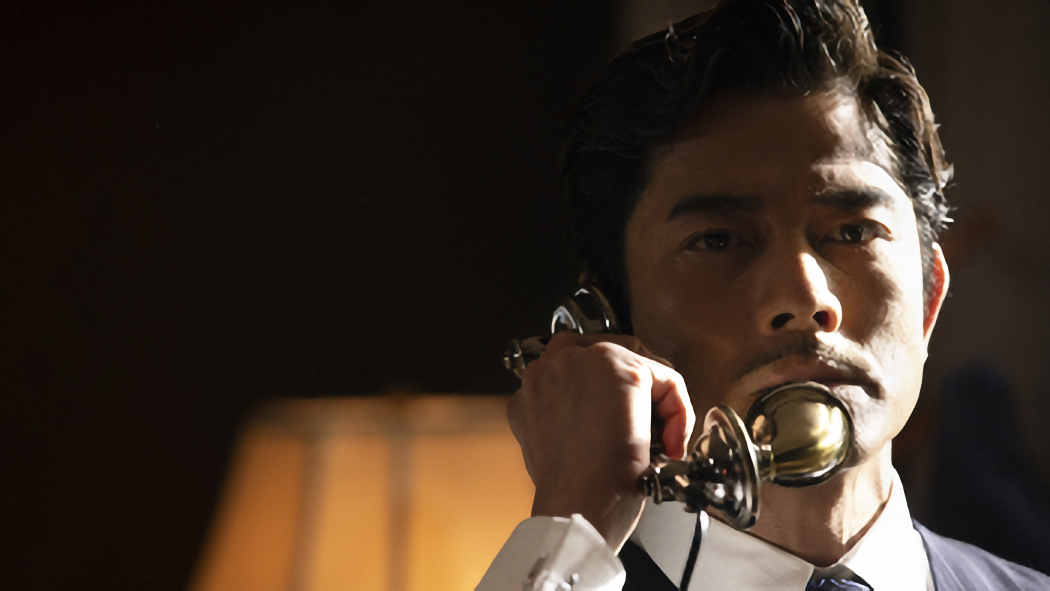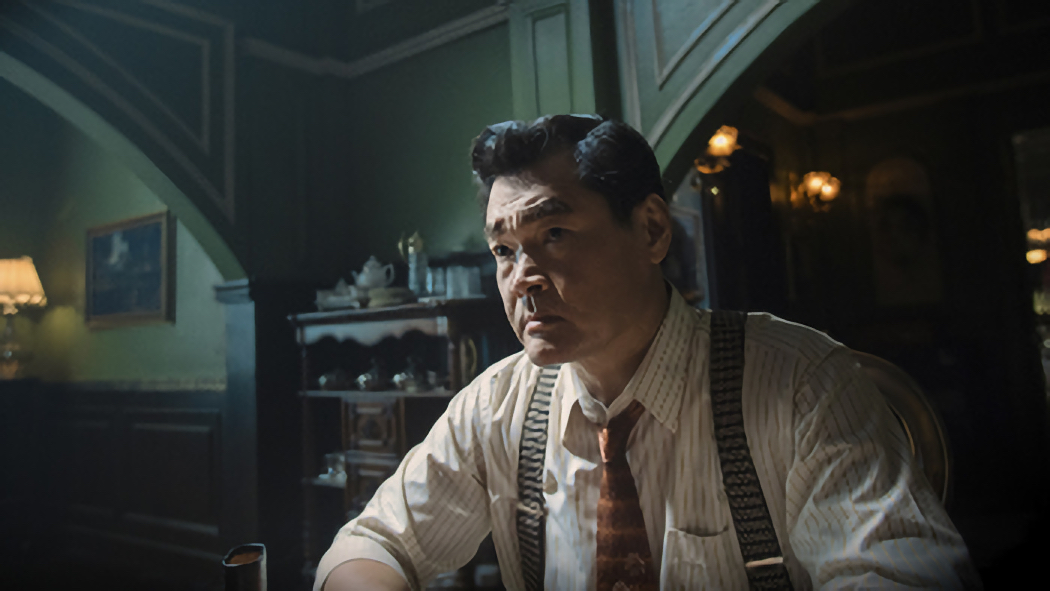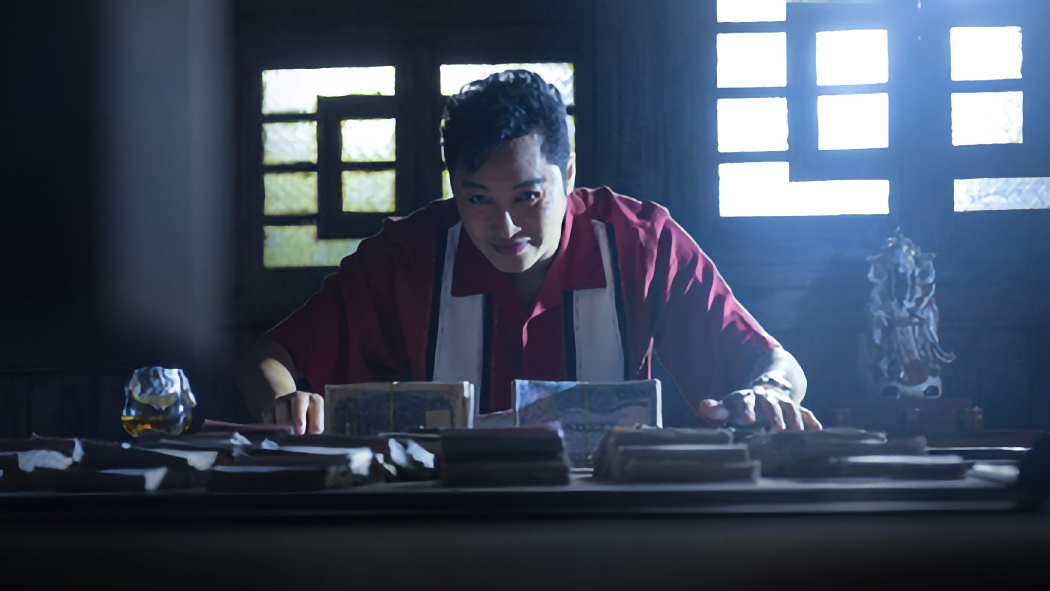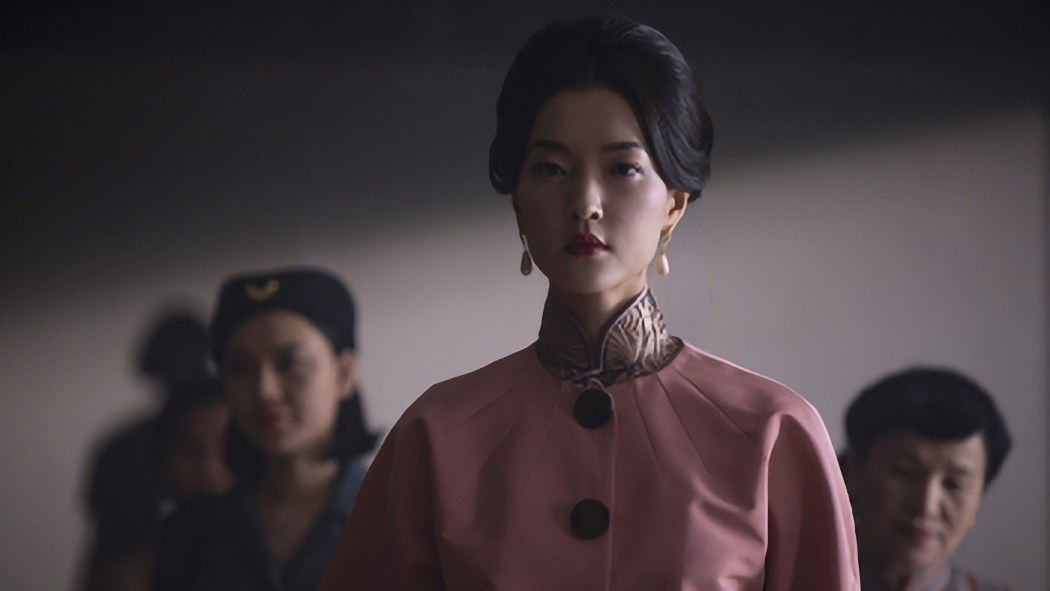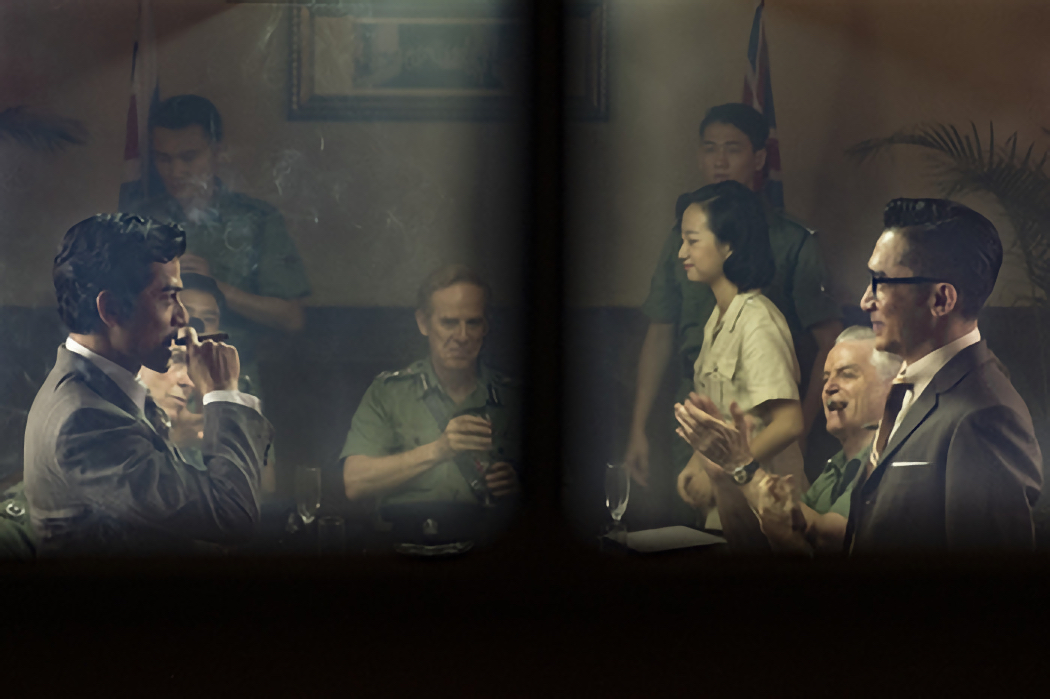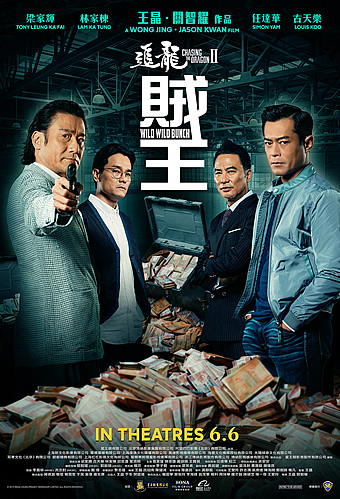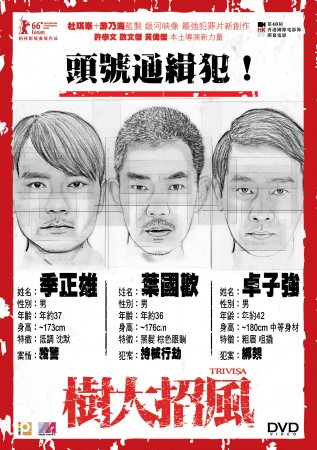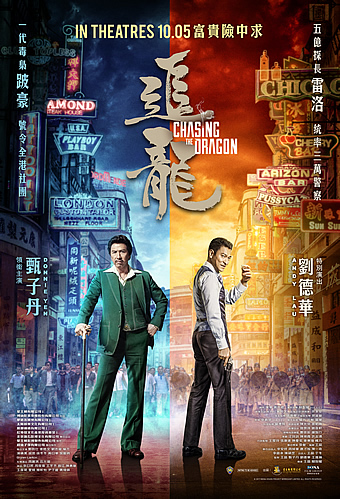WHERE THE WIND BLOWS (风再起时) (2023)
Genre: Drama/Thriller
Director: Philip Yung
Cast: Aaron Kwok, Tony Leung , Michael Chow, Patrick Tam, Du Juan, Michael Hui, Elaine Jin
Runtime: 2 hrs 24 mins
Rating: M18 (Some Sexual Scenes and Drug Use)
Released By: Shaw Organisation
Official Website:
Opening Day: 23 February 2023
Synopsis: In the 70s, Hong Kong Independent Commission Against Corruption (HKICAC) was founded. The mission to hunt down corrupted detectives unveiled a new chapter of the colonial Hong Kong. Lui Lok (Aaron Kwok) and Nam Kong (Tony Leung) who used to be two righteous police officers wanted to change the status quo. They built an empire of corruption by controlling organised crimes and eventually took the position of Chief Chinese Detective. A new episode of history began, HKICAC issued the wanted notices for Lui Lok and Nam Kong. Their era has officially come to an end. Where the wind blows, Hong Kong is no longer where it used to be….
Movie Review:
Hong Kong will never be the same again. That’s a constant refrain we hear from those who lament how the latest national security law has fundamentally changed the face of Hong Kong. But what exactly is the Hong Kong of the past? Is it a Hong Kong with a democratically elected government – but its former British rulers never did extend such freedoms to the colony? Or is it a Hong Kong with a strong rule or law – but wasn’t the corruption of the Hong Kong police force one of the colony’s most significant problems from post-war perhaps until later into the 20th century?
‘Where the Wind Blows’ is a sober reminder of Hong Kong through the decades, seen through the fates of two of its most infamous characters in the police force – Lui Lok (Aaron Kwok) and Nam Kong (Tony Leung). A series of black-and-white vignettes show how Lui Lok started out an uncharacteristically righteous beat cop, who was physically lectured by his fellow officers for refusing to be on the take like everyone else; the only other officer who stood up for him is Fat Bee (Michael Chow), who will become a trusted partner and friend over the years. Notwithstanding his earlier idealism, Lui Lok’s experience during the Japanese occupation jolts him, leading him to abandon his code of morals after he rejoins the force following the war.
In contrast to Lui Lok’s humble beginnings, Nam Kong came from a wealthy, privileged family. Again, through a series of black-and-white vignettes, we will learn how Nam Kong’s experience during the Japanese occupation teaches the law graduate the value of a gun over a typewriter, leading him to enrol in the police force after the war was over. A good deal of time in the first hour is spent detailing how Lui Lok and Nam Kong’s respective convictions had evolved when they were young adults no thanks to the war, and while it does make the introduction extended, it does pay off later on when both become partners and rivals at the same time.
Though spanning over several decades, writer-director Philip Yung keeps the emphasis largely on the two decades or so from when both Lui Lok and Nam Kong were appointed corporals after successfully extinguishing a series of politically charged riots by pro-KMT protestors in the mid-1950s to the establishment of the Independent Commission Against Corruption (ICAC) in the mid-1970s. Lui Lok’s professional ascent is closely intertwined with the machinations of his shrewd Shanghainese wife Tsai Zhen (Du Juan) – whom he first impresses by showing off his tap dancing moves against Nam Kong’s piano playing and then quickly marries despite the objections of her father (Richard Ng in a brief cameo) – though their marriage also had its ups and downs, especially when he has an affair with a nightclub singer (Jessie Li). On the other hand, Nam Kong has a largely loveless marriage with Cora (Jeana Ho), due largely to his longtime crush on Tsai Zhen.
To the larger force though, Lui Lok and Nam Kong were two of the “Four Great Sergeants”, the other two being filled superficially by Fat Bee and Yim (Patrick Tam). Under the guise of keeping the peace, the “Four Sergeants” hatch a plan earlier on to carve out the districts amongst themselves, where they would each manage the triads within and collect a “monthly management fee” from the businesses to please the gangs, their British bosses and themselves. Yet as any historian will tell you, absolute power corrupts absolutely, and it isn’t long before we see both Lui Lok and Yim get greedy in their own ways; in particular, one interesting but all too brief chapter has both Nam Kong and Yim conspiring to aid the infamous Limpy Ho (Tse Kwan-ho) to take over the drug and gambling businesses run by the triads in Lui Lok’s territory.
It is clear that Yung did extensive research into his larger-than-life characters, and just as clear that he struggles to try to contain all that into a tight, coherent narrative from start to finish. Indeed, the rivalry between Lui Lok and Nam Kong – or for that matter the contestation among the Four Great Sergeants – could have been much better fleshed out; as it stands, there is one great scene where the four of them erupt into disagreement over a mahjong game, but no good follow-up thereafter. So too the complicated balance between the cops and the triads, jostling for mutual accommodation and having to define a new equilibrium when Limpy Ho enters the already crowded scene.
Those therefore expecting a gripping crime drama will likely be disappointed; so too those expecting an exciting crime thriller filled with gunplay. And yet, ‘Where the Wind Blows’ rewards those who willing to invest two hours and some of their time with a sumptuously-mounted biopic of the rise and fall of Lui Lok and Nam Kong, both enigmatically flawed with plenty of ambition and derring-do. It is a reminder of how ultimately despite the illusion of power, authority and wealth, nothing lasts forever. It is also a reminder of how deeply troubled Hong Kong was even in the post-war decades, and though an extended coda at the end with ICAC chief George Lee (Michael Hui) making an impassioned plea to his British superiors to act in the longer-term interests of the Hong Kong people seems tailored to the Mainland Chinese censors, it is nonetheless powerful and deeply poignant.
So in spite of its many flaws, we’d recommend that you go in with an open mind and let ‘Where the Wind Blows’ take you where it does. Though reportedly delayed by about five years, this is an ambitious, sprawling period epic in every sense. Film critic-turned-filmmaker Yung’s previous effort was the intriguing murder drama ‘Port of Call’, and this follow-up is on a much, much larger scale, perhaps more expansive than his own skills could match. Yet there is an undeniable poeticism to his effort, and even though we wish he’s exercised more discipline to the storytelling, it is still a strong addition to Yung’s oeuvre and perhaps most significantly, an ode to the tumult that Hong Kong has been through, for better and for worse.
Movie Rating:




(Not quite as tight or compelling as it could have been, this period epic is nonetheless a deeply moving crime saga of ambition, power and frailties)
Review by Gabriel Chong
You might also like:
(R1)(Reference).jpg)
Movie Stills
